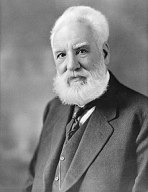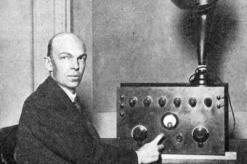As a double major in Anthropology and Film and New Media, Tim Wu‘s discussion of the outsider inventor was the point that stood out to me most in The Master Switch.
So what does an outsider’s perspective bring to the table of invention?
Wu explains the outsiders perspective as having “innovative distance”, “the importance of the outsider [to invent] owes to his being at the right remove from the prevailing currents of thought about the problem at hand” (Wu 19). Outsiders have enough information to understand the present technologies, but are not directly within the industry, able to bring new perspective.
I think Anthropology practices can help us better understand this concept. Anthropology research is most often done from an outsider’s perspective, the Anthropologist attempts to understand a society’s cultural aspects better than an insider may be able to. Insider perspectives can often be tainted with biases, creating a blindness to things they do not want to see. While outsiders of course also bring with them biases, combined with the intensive research they conduct on the society before arriving and the participant observations conducted during their field research, they are able to give a different perspective that may not have been analyzed before.
Alexander Bell was working in a Boston laboratory in 1876 when he went from trying to improve the telegraph to creating a brand new technology, the telephone. He was able to bring this technology to the attention of Gardiner Hubbard, who was an enemy of the telegraph industry. This proved to be important to Bell’s success, because if his investor had been more like Elisha Gray’s, who invented the telephone at the same time but was not able to tell his investor, he may not have been deemed the inventor of the telephone. If Bell had been more closely connected to the telegraph industry, he would have been silenced, but instead was key in creating one of the biggest monopolies of all time, AT&T.
This is where the story becomes rather ironic. Hush-A-Phone was a telephone silencer lead by Henry Tuttle in the 1940s. It was just a simple cup shaped attachment to the phone that let people have a more private conversation. AT&T with its own invention headquarters, Bell Labs, “launched a crackdown” (Wu 101) on this foreign invention attempting to improve their phones. They wanted to control which inventions would go public and when. If they thought an invention would hurt their technology, even ones created in their own Bell Labs, then they would simply not release it. They were scared of the outside inventor, even though they themselves were created by an outsider.
An even better example of this is possibly FM radio.
FM radio was invented in the 1920s by Professor Edwin Armstrong, “one of the lone inventors who had long sustained the American approach to innovation” (Wu 126). He was a radio enthusiast, and had a close relationship with fellow enthusiast David Sarnoff, leader of the RCA. When Sarnoff asked Armstrong to work on creating a black box that would improve AM radio, Armstrong instead discovered FM radio. Sarnoff responded to this discovery with, “this is no ordinary invention. This is a revolution” (Wu 127).
Sarnoff crushed FM Radio. With his power he was able to belittle it to the point of irrelevancy. In 1946, twenty years laters, Sarnoff decided to put FM receivers in RCA’s television sets. Instead of giving credit to Armstrong, RCA took all the credit. If Armstrong had gone to someone who was not invested in AM Radio, he may have seen FM Radio flourish much earlier and be given credit. Sarnoff wanted to release the disruption to his industry in his own terms and his own time, so it could be controlled adequately.
These examples portray the importance of outside invention. If able to gain investors that support disruption in a major industry, like Bell did, there is possibility for great success from these inventors. On the other hand, if brought to the attention of the industry, without significant investment, it will be repressed. An outsider can bring perspective to modern technologies, that are suppressed by insiders within an industry.



Leave a comment